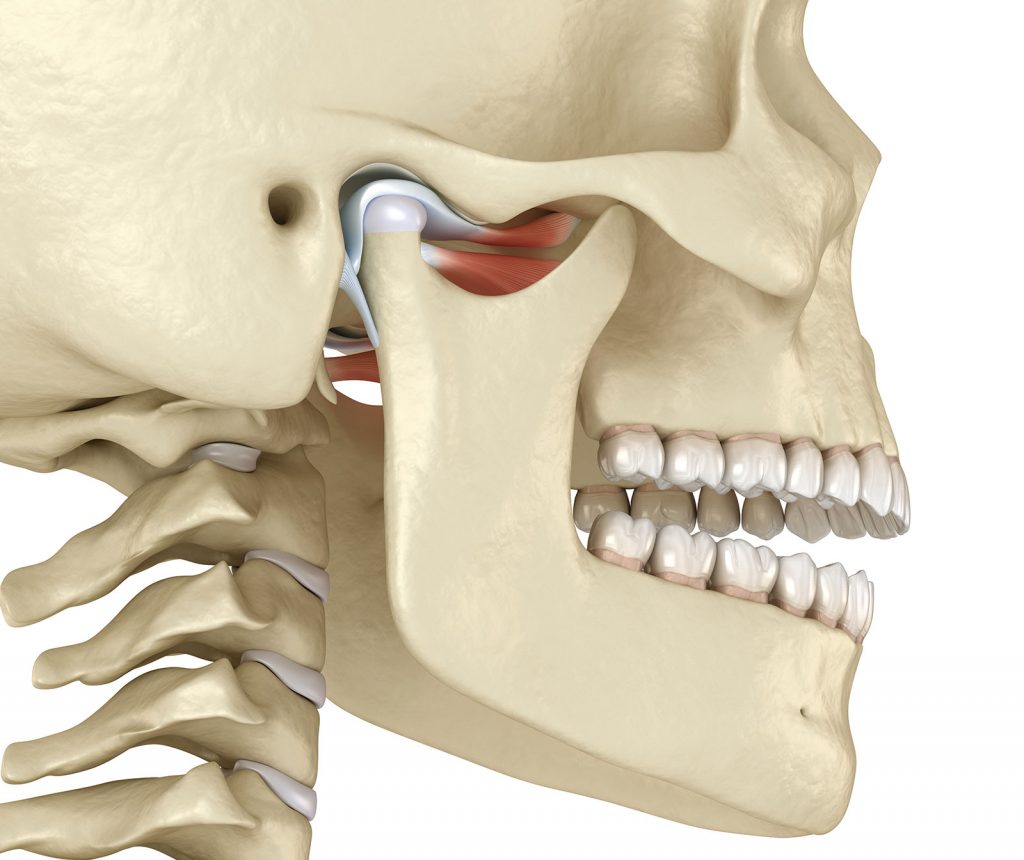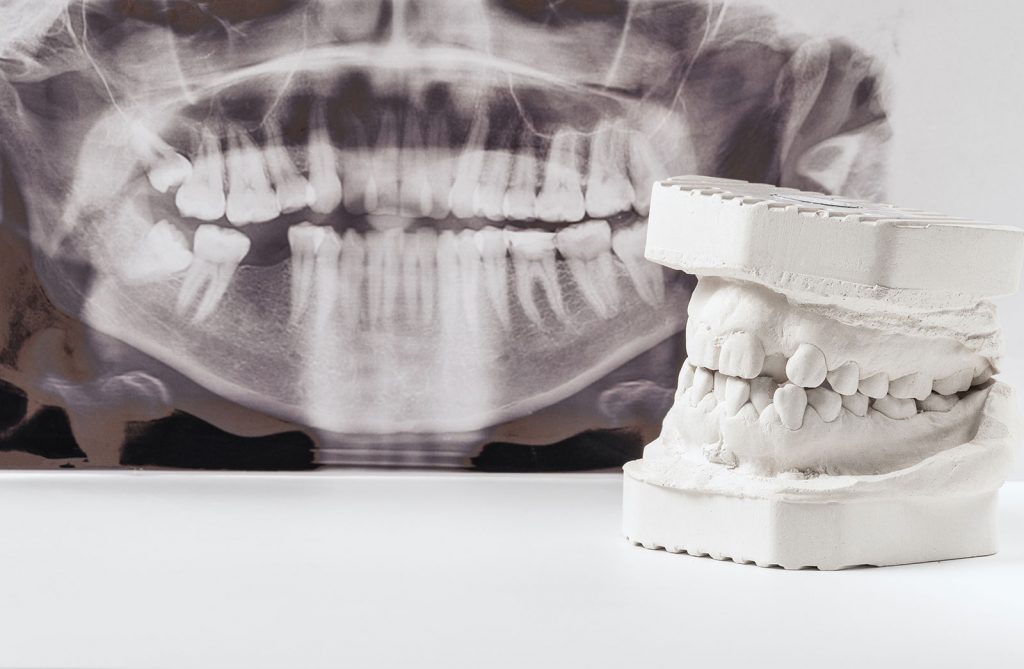Cocaine abuse is fairly easy to spot. Dilated pupils, excessive sweating, grumpiness, and unusual behavior are telltale signs that someone has been using.
Coke jaw is another dead giveaway. It is one of many consequences of cocaine use that impact the mouth, which is very noticeable.

Unfortunately, the way it looks is the least of your worries. If cocaine use is serious and prolonged, coke jaw can do serious damage inside your mouth. Educating yourself about coke jaw and other mouth conditions will improve your chances of beating this addiction for good.
(If you are worried about a friend or loved one, we’re glad you’re here. This is a great discussion to “listen in on.”)
Table of Contents
What Is Coke Jaw?
A number of cocaine-related problems affect the mouth. Effects of cocaine use range from temporary dry mouth to chronic gum disease and eventual tooth loss. As a whole, oral problems are referred to as coke mouth. The severity of coke mouth usually depends on the severity of the addiction.
More specifically, coke jaw falls under the umbrella of temporomandibular disorders, or TMD. That is a fancy term for a wide range of jaw problems that cause jaw pain. Examples include difficulty opening and closing the mouth, jaw popping or clicking, and facial palpitations. People who don’t use cocaine can have one or more symptoms of TMD, but users have more instances of TMD and more pronounced symptoms.
Coke jaw is marked by the tightening of the jaw or by erratic, uncontrollable jaw movement, typically from side to side. People with coke jaw also clench and grind their teeth, often without being aware of it.
This is one of those unpleasant side effects that might have you asking yourself if cocaine is worth it.
For one thing, coke jaw is painful. The human jaw is not constructed to move from side to side. The unnatural movement can cause serious headaches and much worse.

What Causes It?
Stimulants like meth, ecstasy, and coke cause just about every process in the body to fast forward. The explosive burst of energy might feel like a good thing at first, but it is short-term and quickly starts to overwhelm. Cocaine is notorious for making people tense, anxious, grouchy and paranoid. People who are tense, anxious, grouchy and paranoid tend to clench their jaw and grind their teeth. You can sometimes even see their jaws working back and forth or their jawbones “knotting” under the skin.
Users who rub the drug directly into gum tissue are more likely to develop coke jaw.
What Other Problems Does It Lead To?
Most people are aware of the damage that coke can do in the brain, various body systems, and vital organs. The potential long-term damage of coke jaw and other mouth issues is not talked about as much. It should be.
Cocaine abuse creates a perfect storm for all sorts of oral problems, and one bad symptom or disorder usually triggers or exacerbates others. That is often the case with substance use disorder. For example, depression and anxiety usually go hand in hand with a drug habit. It is the same way with coke mouth — if you have one issue, like coke jaw, you typically have several.
Excessive teeth-grinding, a disorder known as bruxism, is a common complaint with coke jaw. It can lead to a world of hurt in both the dentist’s chair and your bank account. Grinding your teeth can result in worn-down tooth enamel, cavities, and brittle or broken teeth. Dental remedies are not cheap.
Cocaine users also have to watch out for dental erosion. Have you ever heard about the effects of lemon or other acidic foods on your teeth? Well, cocaine powder is like lemon juice on steroids. It almost immediately starts eating away at tooth enamel and mouth tissue, especially the tissue between teeth. Once that is gone, painful mouth sores, infections, and missing teeth could be in your future.
If the cocaine is cut with other substances, which it almost certainly is, the risk for exposure to acidic materials and bacteria is even greater.
Rubbing cocaine into your gums puts you at high risk for bone loss and chronic gum diseases like gingivitis. Smoking crack cocaine — or smoking anything — also does extensive damage. The bone and tissue that hold your teeth in place recede and wear away; having no anchor, teeth start drifting and eventually fall out.

As for dry mouth, not taking it seriously is a mistake. Dry mouth occurs when cocaine use disrupts the flow of saliva. Tooth decay, bleeding gums, and gum disease are likely without saliva.
Cocaine constricts blood vessels, which cuts off the oxygen supply to cells. As a result, when snorting coke becomes a habit, the cells in the nasal cavity start dying off. Since the nose and mouth are so closely connected, tissues in the soft and hard palates gradually deteriorate. The resulting perforations, or holes, make it hard to talk, swallow, and eat.
In addition to causing serious problems inside the mouth, coke jaw and other issues take a heavy toll on self-esteem. Your smile is one of the first things people notice about you. The condition of your teeth and gums can make or break your mood, confidence, and motivation.
Some side effects, like a runny nose, nosebleeds, or dilated pupils, go away when cocaine is out of the system. However, in severe cases of addiction, coke-related dental issues could be around for a while.
How Is It Treated?
Coke jaw is not a dental problem. It’s a substance abuse problem.
Drug use is the greatest obstacle to good oral health. Aside from the direct damage cocaine can do, people who use it are less likely to eat well, stay hydrated, and practice good hygiene.

Fortunately, when a problem from cocaine side effects is caught and treated early on, the likelihood of long-term damage from coke mouth is small. When the drug is withdrawn and detox, many issues start to self-correct right away. Also, the best treatment programs incorporate nutritional advice and hygiene tips to restore a winning smile.
If more help is needed, dentists and periodontists have the advanced technology to practically work miracles these days. The number of options in restorative dentistry — like implants, dental bridges, and partial dentures — keeps growing all the time.
Again, though, when the effects of cocaine is the main problem, staying on top of dental issues and other health problems is all but impossible. When one complaint is temporarily resolved, another crops up in its place.
Treating symptoms, like coke jaw or any other from drug abuse, is never a long-term solution. We must get to the root of the problem and call it what it is: Addiction is a chronic disease just like diabetes or high blood pressure. There is no cure, but it can be managed. With the help of experienced professionals and proven treatment methods, people with substance use disorder live productive, rewarding lives.
Help for Addiction at ReCreate Life Counseling
If you are struggling to quit cocaine, we understand how you got here.
People start using coke for the intense euphoria it provides. Almost immediately, users feel happier, more energetic, and more confident. For those reasons, cocaine is one of the most dangerous drugs in the world. Every day, someone who intended to use it only occasionally or even just once becomes hooked. The allure is powerful, but we have powerful weapons.
Since no two drugs, no two people, and no two addictions are alike, we tailor our treatment plans to individual needs. Your highly personalized care might combine several of these proven methods:
- Cognitive behavioral therapy
- Individual and family counseling
- Group discussions
- 12-step models
- Holistic methods
- Reiki therapy
- Yoga or exercise classes
- Diet and nutrition counseling
Conclusion
If you or someone you care about is experiencing symptoms of coke jaw, such as persistent jaw clenching, teeth grinding, or oral discomfort, it’s essential to recognize these signs as potential indicators of cocaine misuse. At Recreate Life Counseling, we offer comprehensive addiction treatment programs that address both the physical manifestations and underlying causes of substance use disorders. Our multidisciplinary approach includes medically supervised detoxification, individualized therapy, and support for co-occurring mental health conditions, ensuring a holistic path to recovery. By seeking professional help, individuals can not only alleviate the distressing symptoms of coke jaw but also embark on a journey toward lasting sobriety and improved overall health.
What is coke jaw?
How long after using cocaine is coke jaw visible?
Published on: 2022-08-30
Updated on: 2025-05-30



